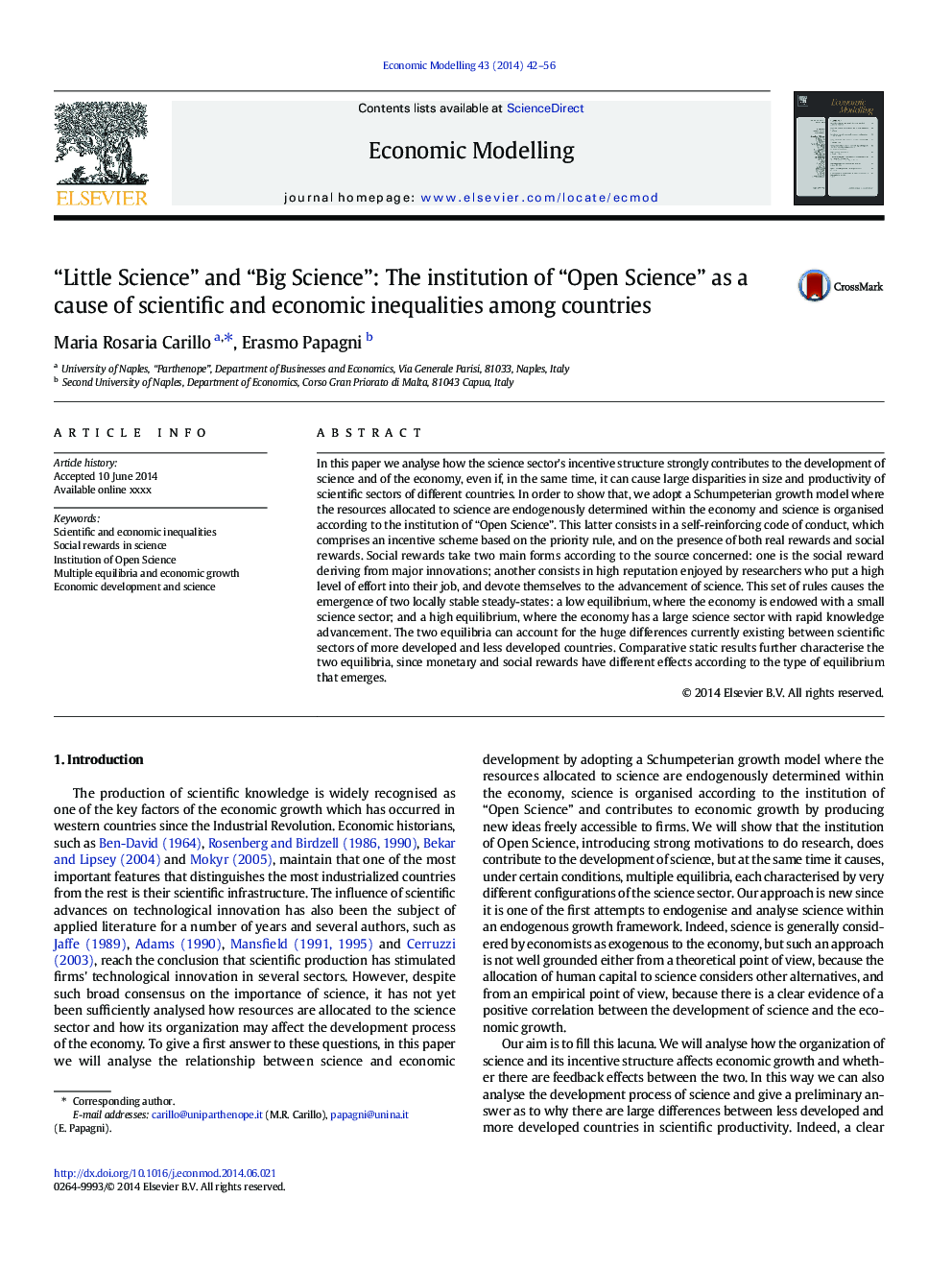| کد مقاله | کد نشریه | سال انتشار | مقاله انگلیسی | نسخه تمام متن |
|---|---|---|---|---|
| 5054163 | 1476525 | 2014 | 15 صفحه PDF | دانلود رایگان |
عنوان انگلیسی مقاله ISI
“Little Science” and “Big Science”: The institution of “Open Science” as a cause of scientific and economic inequalities among countries
ترجمه فارسی عنوان
علم کوچک؟ و علم بزرگ؟: موسسه علم باز؟ به عنوان علت نابرابری علمی و اقتصادی بین کشورها
دانلود مقاله + سفارش ترجمه
دانلود مقاله ISI انگلیسی
رایگان برای ایرانیان
کلمات کلیدی
نابرابری علمی و اقتصادی، پاداش اجتماعی در علم، موسسه علوم باز، تعادل چندگانه و رشد اقتصادی، توسعه اقتصادی و علم،
موضوعات مرتبط
علوم انسانی و اجتماعی
اقتصاد، اقتصادسنجی و امور مالی
اقتصاد و اقتصادسنجی
چکیده انگلیسی
In this paper we analyse how the science sector's incentive structure strongly contributes to the development of science and of the economy, even if, in the same time, it can cause large disparities in size and productivity of scientific sectors of different countries. In order to show that, we adopt a Schumpeterian growth model where the resources allocated to science are endogenously determined within the economy and science is organised according to the institution of “Open Science”. This latter consists in a self-reinforcing code of conduct, which comprises an incentive scheme based on the priority rule, and on the presence of both real rewards and social rewards. Social rewards take two main forms according to the source concerned: one is the social reward deriving from major innovations; another consists in high reputation enjoyed by researchers who put a high level of effort into their job, and devote themselves to the advancement of science. This set of rules causes the emergence of two locally stable steady-states: a low equilibrium, where the economy is endowed with a small science sector; and a high equilibrium, where the economy has a large science sector with rapid knowledge advancement. The two equilibria can account for the huge differences currently existing between scientific sectors of more developed and less developed countries. Comparative static results further characterise the two equilibria, since monetary and social rewards have different effects according to the type of equilibrium that emerges.
ناشر
Database: Elsevier - ScienceDirect (ساینس دایرکت)
Journal: Economic Modelling - Volume 43, December 2014, Pages 42-56
Journal: Economic Modelling - Volume 43, December 2014, Pages 42-56
نویسندگان
Maria Rosaria Carillo, Erasmo Papagni,
